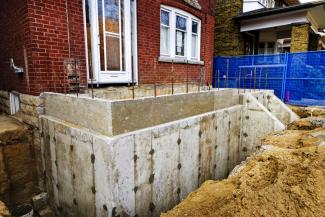7 Tips to Prevent Home Contractor Scams
Have you ever hired a contractor for a home improvement project who produced shoddy results? Did the poor construction work damage you or your neighbor’s property? Or did the contractor repeatedly break the terms of your contract, even leaving a job unfinished? While frustrating for many consumers, in some cases, the contractor may have also broken the law.
When considering a remodel or a construction project on your property, it’s important to know how to find a reputable home contracting professional. Here are seven tips to avoid being scammed by a contractor:
- Do your due diligence and research the contractor: Before entering into a contract, make sure you do your research on the contractor before making payments. Find out whether a contractor’s license is valid and up to date by calling the District’s Department of Consumer and Regulatory Affairs at (202) 442-4311 or online at eservices.dcra.dc.gov/BBLV/Default.aspx. You can also research a contractor by searching online or in community listservs to view reviews and to see if there are complaints against the company.
- Obtain a written contract before the work begins: The contract should describe the work to be performed, outline any expectations, and state the contractor’s obligation to get all necessary permits. Don’t settle for vague language—the contract should lay out comprehensive, detailed summary of every part of the project, even if it’s a minor one. Moreover, if the contract contains a mandatory arbitration provision or non-disclosure agreement (NDA), proceed with extreme caution. NDAs in particular are not common in home improvement contracts.
- Keep a thorough record of all communications with your contractor: Create a timeline noting all meetings, phone conversations, and payments. This will hold the contractor accountable during and after the project.
- Never pay in full before the project is completed to your satisfaction: This ensures the contractor stays committed to the project and won’t leave before it’s finished or do subpar work while sitting on your money. Additionally, try not to pay a substantial portion of the overall project cost before it is completed. A common rule of thumb is to negotiate a deposit of no more than one-third of the full payment.
- Don’t hire on the spot: It’s common for a contractor to approach a homeowner with the promise of doing a project at a discounted price, with leftover materials from another, nearby project. This is a red flag. Always take your time to vet a contractor before going into business with them.
- Do not obtain a home equity loan from your contractor: You should always shop around for a loan first, and then compare rates and terms. If you do obtain a home equity loan or other loan product through your contractor, make sure that you (1) research the loan company, (2) communicate with the loan company directly and (3) confirm that only you have the authority to receive and/or release funds.
- Report any complaints to OAG: If you believe you have been scammed or treated unfairly by a home contractor, submit a complaint to the Office of the Attorney General by calling (202) 442-9828, emailing consumer.protection@dc.gov, or submitting a complaint online. This helps us respond to individual consumer complaints and identify contracting companies that have repeatedly cheated District consumers.
OAG works to educate District residents about their consumer rights, responds to individual consumer complaints, and takes appropriate law enforcement action when possible. Recently, OAG filed a lawsuit against Precision Contracting Solutions for routinely providing shoddy and destructive home construction work to District residents.

